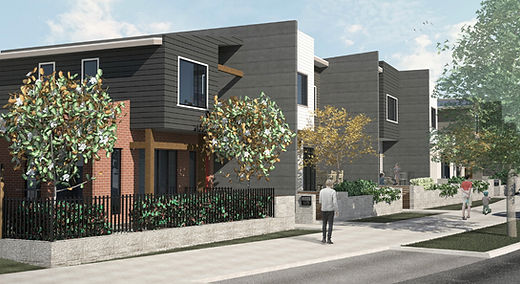
Scott Point Development


DESIGN APPROACH
Scott Point is a peninsula in northwest Auckland beside Hobsonville Point, about 25 kilometres drive from the Auckland CBD. The total area of the land is about 156 hectares. In 2015 Scott Point was rezoned to urban residential through a Plan Variation to the AUP under the HAASHA. It was a private zone change process initiated by a group of local landowners who contacted Abu Hoque (then at Harrison Grierson as a Principal and Senior Urban Designer) to lead the rezoning process on behalf of the landowners' group. Abu (currently the Practice Director of Qbix) then acted as the Project Manager and Led Urban Design for the project from Harrison Grierson. It was a highly successful rezoning proposal and obtained its new zoning status in 2015 through an independent hearing process. The Plan Variation proposal was developed based on a Structure Plan prepared by Abu. The Scott Point Plan Variation and the Structure Plan eventually obtained the New Zealand Planning Institute's Supreme Planning Award in 2016. At the same time, Abu Hoque obtained a Planning Institute Award for Excellence in Planning Practice and Regional Planning.
The issues, constraints and opportunities were taken into account in developing the Scott Point Structure Plan, which is the backbone of the Plan Variation proposal and is based on a particular vision and a number of specific objectives and development principles.
The Scott Point Structure Plan provides an opportunity to shape a shared vision for Scott Point. The vision for Scott Point is based on four categories of development outcomes for the area liveability, sustainability, resilience, and connectivity. About these factors:
Liveability is the sum of the factors that add up to a community's quality of life, which also indicates the comfort capacity of that community. The Structure Plan needs to make sure that Scott Point can offer the highest degree of comfort to its residents in the future.
Sustainability is the success of a place in the long term and confirms the carrying capacity. In this context, the Scott Point Structure Plan needs to ensure that Scott Point is not only a unique place to live for the current generation but also for future generations.
Connectivity is the degree to which networks, i.e. streets, open spaces, public transport, walking and cycling routes, services, and infrastructure interconnect. It confirms the integration capacity of a place within itself and between different places.
Resilience refers to how well a place adapts during the time between the present and future. In other words, it refers to the coping capacity of that place.